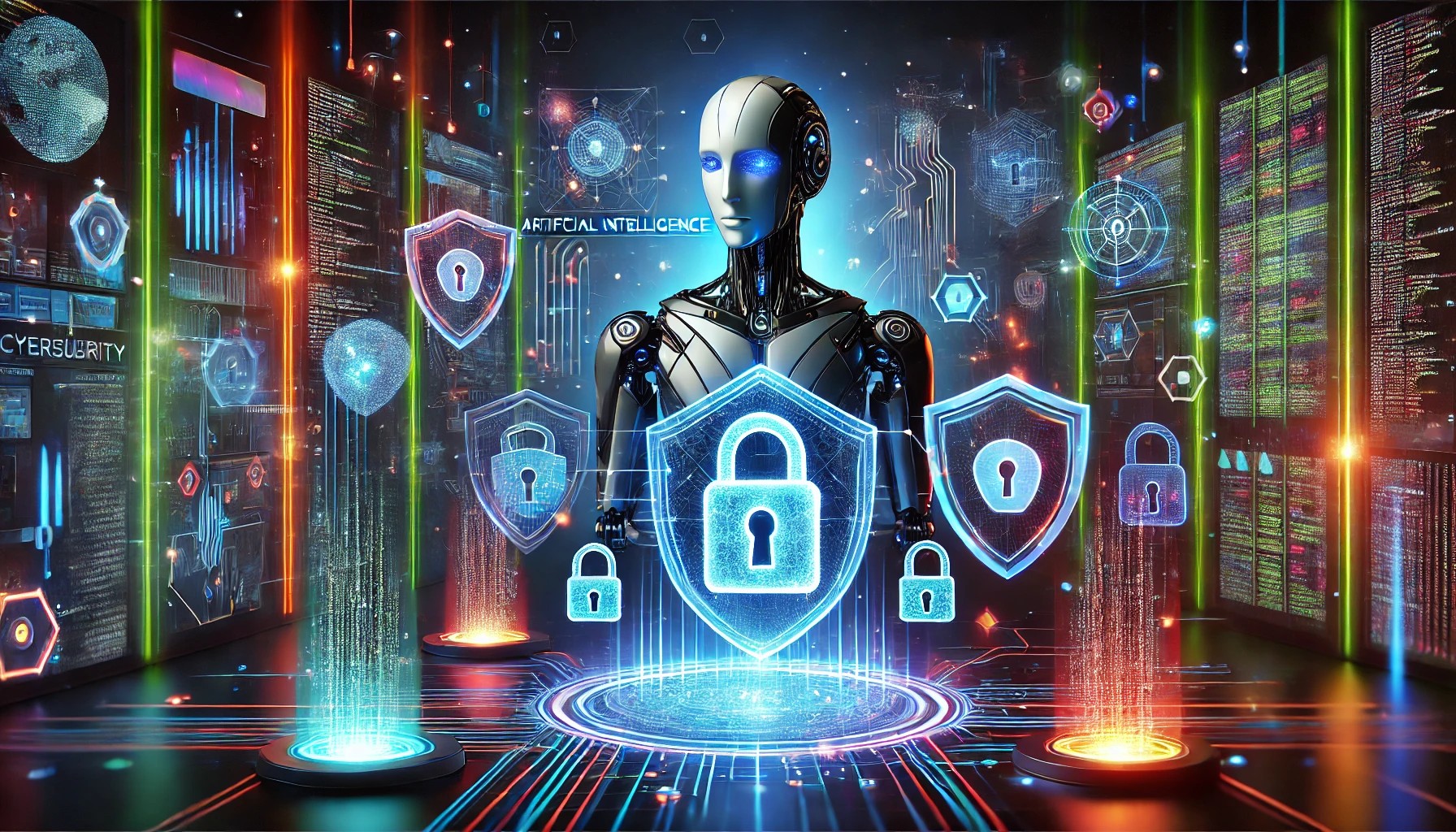April 2024
Introduction
In an era where cyber threats are constantly evolving, artificial intelligence (AI) is becoming a crucial tool in protecting businesses from data breaches and cyberattacks. In 2024, AI-driven cybersecurity solutions are expected to become even more advanced, offering businesses the ability to predict, detect, and respond to threats faster than ever before. This blog will explore how AI is transforming cybersecurity and why it’s an essential part of any modern business strategy.
1. AI for Threat Detection and Response
One of AI’s most significant contributions to cybersecurity is in threat detection. Traditional cybersecurity systems often struggle to keep up with the sheer volume of data and potential threats, but AI systems are designed to sift through large datasets in real-time. By analyzing patterns and recognizing anomalies, AI can detect unusual activity that may signal a breach or cyberattack.
In 2024, companies are expected to increasingly rely on AI-driven Security Information and Event Management (SIEM) systems, which use machine learning to identify threats faster than human analysts. Tools like Darktrace and CrowdStrike Falcon are already leading the way, offering advanced threat detection and automated incident response capabilities.
2. AI-Powered Predictive Analytics for Vulnerability Assessment
AI is also playing a pivotal role in predictive analytics, helping businesses identify vulnerabilities before they can be exploited. By analyzing previous cyberattacks and system weaknesses, AI tools can predict where a company may be most at risk and recommend steps to strengthen its defenses.
IBM’s Watson for Cybersecurity, for example, uses AI to perform continuous vulnerability assessments, helping businesses stay ahead of potential threats. In 2024, we can expect more companies to adopt similar AI solutions to proactively address security weaknesses and bolster their defenses against increasingly sophisticated attacks.
3. AI-Driven Data Encryption and Privacy Protection
As cyber threats become more complex, businesses are turning to AI-powered encryption technologies to protect sensitive data. AI can enhance traditional encryption methods by ensuring that data is protected both in transit and at rest, using dynamic, AI-generated encryption algorithms that are harder for hackers to crack.
With data privacy regulations becoming more stringent around the globe, such as the General Data Protection Regulation (GDPR) in Europe and California Consumer Privacy Act (CCPA) in the U.S., companies will need to ensure they have strong encryption systems in place. AI tools can help businesses comply with these regulations while ensuring their data remains secure.
4. AI for Automating Incident Response
In the fast-paced world of cybersecurity, every second counts. AI-driven systems can automate much of the incident response process, allowing businesses to react to threats more quickly. When a breach is detected, AI systems can automatically isolate affected systems, block malicious activity, and notify security teams in real-time.
One such tool, Cortex XSOAR by Palo Alto Networks, uses AI to automate security workflows, allowing security teams to respond faster and more efficiently. By 2024, more businesses are expected to adopt AI-based incident response systems to reduce the response time to cyberattacks and minimize damage.
5. Ethical AI and Cybersecurity: Balancing Protection and Privacy
While AI is making significant strides in protecting businesses from cyber threats, it also raises concerns around privacy and ethics. Companies must ensure that their AI-driven cybersecurity systems are transparent and do not infringe on user privacy. This is particularly important as businesses use AI to monitor employee activity or customer data to detect threats.
In 2024, the conversation around ethical AI in cybersecurity will continue to evolve, with businesses needing to balance the use of AI for protection with the ethical implications of data monitoring and surveillance.
Quiz: Is Your Business AI-Ready for Cybersecurity?
How does AI help improve threat detection in cybersecurity? A. By automating business operations
B. By analyzing data patterns to identify anomalies
C. By slowing down data transfers
D. By encrypting user passwords
What is one key benefit of using AI-powered predictive analytics in cybersecurity? A. It predicts future market trends
B. It identifies vulnerabilities before they are exploited
C. It boosts sales performance
D. It monitors employee performance
Which AI technology can automate incident response to cyber threats? A. Siri
B. Google Bard
C. Cortex XSOAR
D. Amazon Alexa
Email your answers to info@vistagan.com for a chance to win a free T-Shirt! Contest closes at the end of the month.
Conclusion
As cyber threats grow in complexity and frequency, businesses need to stay ahead of attackers by leveraging the power of AI. From detecting and responding to threats in real-time to identifying vulnerabilities before they are exploited, AI is transforming how companies approach cybersecurity. In 2024, businesses that invest in AI-driven cybersecurity solutions will not only protect their data but also ensure compliance with evolving privacy regulations.
Is your business ready for the AI-driven future of cybersecurity? Contact us today at www.vistagan.com for a consultation and discover how our AI-powered solutions can protect your operations from cyber threats.


